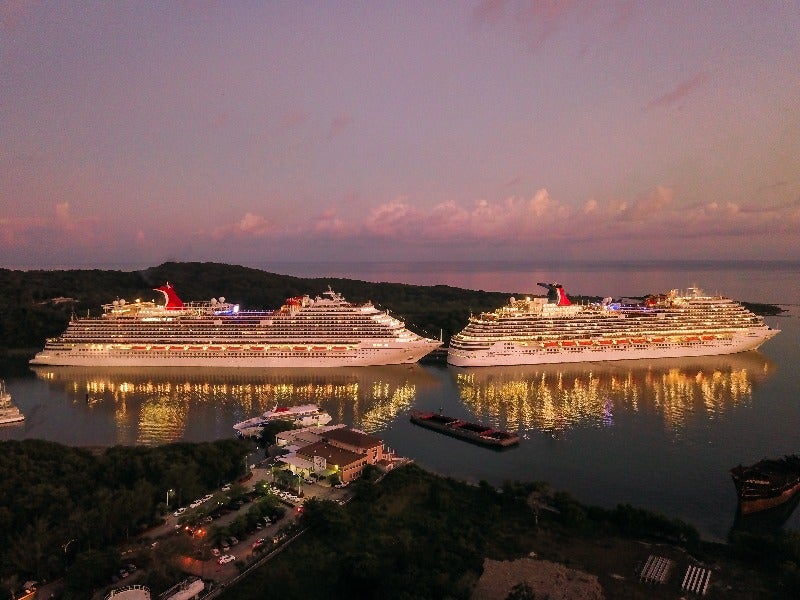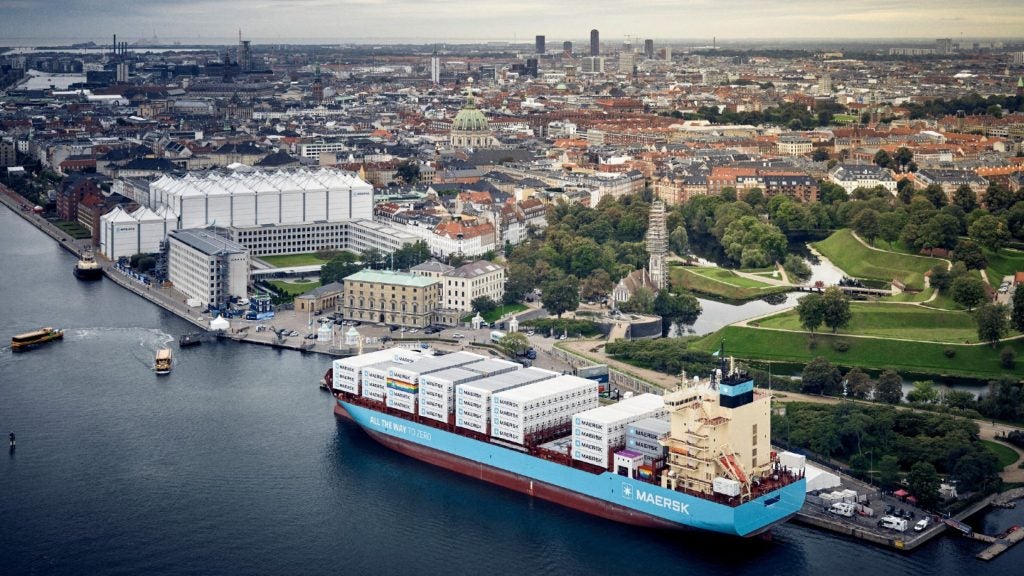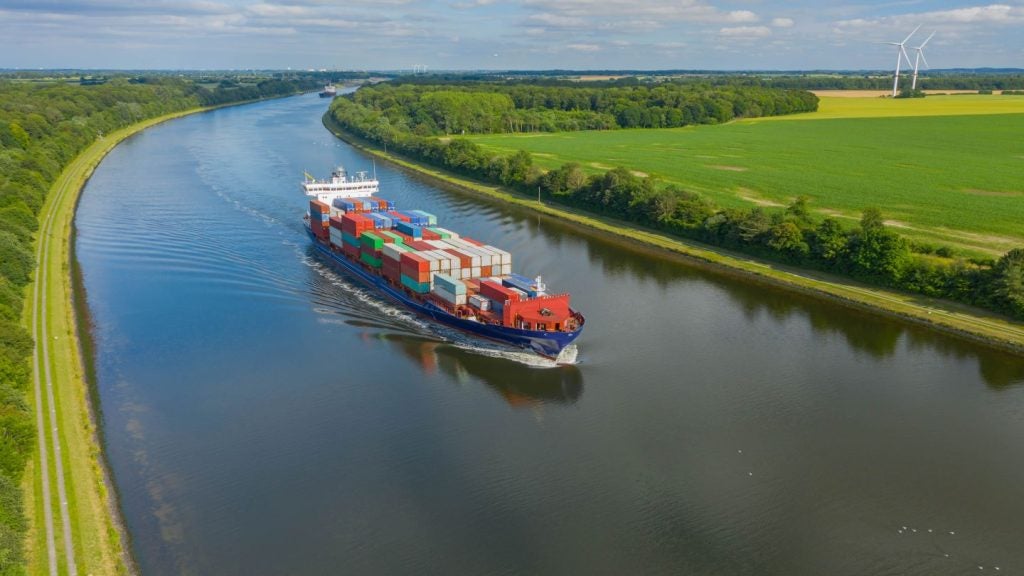
The cruise sector is well accustomed to consolidation. Often the consequence of industry trends such as enhanced competition, entrepreneurial ambition and market prosperity, consolidation strategies have defined the sector for decades.
Carnival Corporation, the largest operator in the world, is testament to this trend as it owns nine lines and over 110 ships under brands including Costa, Cunard and Princess Cruises. Its biggest competitor, Royal Caribbean, operates three smaller lines and holds majority stakes in a vast number of companies itself – among which are its namesake brand, TUI Cruises and Celebrity Cruises.
These seabourne allegiances have dictated market dynamics for a long time and this year had initially seemed no different, with Royal Caribbean announcing a new addition to its portfolio earlier in February. The deal was formalised by TUI Cruises – a 50-50 joint venture owned by TUI AG and Royal Caribbean – which took over TUI AG’s subsidiary Hapag-Lloyd Cruises in a move valued at $1.3bn.
A perhaps unsurprising move from the Royal Caribbean conglomerate, which now has a 50% stake in all TUI AG’s cruise operations, the deal is expected to strengthen the group’s luxury and expedition segments that are forecast to grow in the years to come.
Since then a lot has undoubtedly changed due to the coronavirus pandemic, which is having disastrous impacts on the cruise sector and, more broadly, the world economy.
While it is still too soon to make accurate predictions, experts believe the crisis could soon trigger more consolidation as stagnant operations and booking freezes to threaten the survival of several companies.
How well do you really know your competitors?
Access the most comprehensive Company Profiles on the market, powered by GlobalData. Save hours of research. Gain competitive edge.

Thank you!
Your download email will arrive shortly
Not ready to buy yet? Download a free sample
We are confident about the unique quality of our Company Profiles. However, we want you to make the most beneficial decision for your business, so we offer a free sample that you can download by submitting the below form
By GlobalDataConsolidation in the cruise industry: decades of strategic transfers
“Consolidation in the cruise industry typically comes in two ways,” explains Memorial University of Newfoundland professor and cruise-industry expert Ross Klein, who is also the author of the book ‘Cruise Ship Squeeze’. “One has been cash transfer and the other is transfer of assets.”
While cash transfers imply the physical purchase of a company and its properties, the asset-based alternatives happen “when someone takes over your brand name rather than your company”.
“[TUI] operates the Mein Schiff [line], and Hapag-Lloyd and Mein Schiff can now become complimentary,” says Klein. “It’s climbing the same ladder that we saw for example when Royal Caribbean bought Silver Sea. The idea was that it would allow them to have an ultra-luxury, luxury cruise line to compete with Carnival’s Seaborn and with Norwegian Cruise Line’s (NCL) Regent.”
This principle works for both large owners like Carnival and Royal Caribbean and their smaller competitors looking for stronger financial stability, like in the case of luxury cruise brand Ponant’s recent decision to acquire French Polynesia and South Pacific specialist Paul Gauguin Cruises.
“I think it’s just a natural development,” he continues. “Paul Gauguin has a single ship and is a French company and so is Ponant so the merger makes sense for marketing purposes and all other kinds of reasons, it fits in the Ponant portfolio nicely.”
According to Motley Fool senior analyst Rick Munarriz, these moves have historically been strategic, much like in the case of the Hapag-Lloyd acquisition.
More broadly, Munarriz points out, this doesn’t necessarily mean that small players are entirely left out of the market. “Every industry has room for small players, as long as they can offer a differentiated product,” he says. “Being small has its limitations, but a cruising giant with large ships is going to be limited in ports of call and the need to fill a larger number of cabins with mainstream offerings.”.
The disrupting impact of Covid-19
Both Klein and Munarriz expect a new wave of takeovers and acquisitions will follow the coronavirus crisis. “I think things will take a more opportunistic turn in the near future,” says the latter. “The inevitable shakeout will create bargains too rich to pass up, even if the acquisitions will be challenging to finance.”
The industry is currently one of the pandemic’s most significant victims alongside with the remaining hospitality sector, as bookings for the rest of the year are currently suspended and several companies’ share prices are plummeting fast.
As per data from the Motley Fool, stocks across some of the sector’s most influential players have taken large hits throughout the past few months. At the time of writing, Royal Caribbean shares were down 4.6%, with NCL dropping 5% and Carnival off 6.3%.
While it might still be a while before significant changes do take place, Klein expects consolidation to be one of the pandemic’s most immediate consequences.
“I think we’re going to see the potential collapse of some companies,” says Klein. “The economic impact of coronavirus is so difficult to anticipate but the worst possible scenario is one where companies are going to either go bankrupt or are going to have to mothball or sell ships.”
Echoing his words, Munarriz says the crisis is likely to speed up the pace of potential mergers and acquisitions. “It’s just basic survival of the fittest,” he adds. “Consolidation was a crockpot. Now it’s going to be a microwave. You can never have too many brands apparently in this game.”
This, in turn, will provide new opportunities for consolidation, leaving space for current and new potential mega-players to make their moves within the sector. From Richard Branson and his newly launched Virgin cruise line to luxury hospitality chain Ritz-Carlton and many more, the pandemic could provide many newcomers with the opportunity to buy companies and ships at low prices. As he explains, “For people who have deep pockets, [the ongoing crisis] may provide some interesting developments.”
According to the Motley Fool, these developments could particularly concern the struggling NCL. The company’s financial difficulties are currently impacting competition with Carnival and Royal Caribbean, who might eye an opportunity for themselves.
In fact, despite feeling the strain of the crisis, both could seek out new business opportunities once the crisis is over. “This will probably be the time when Carnival or Royal Caribbean […] decides to make a splash by making a buyout offer for Norwegian Cruise Line,” Munarriz recently wrote. “With folks bracing for a recession and the cruise industry out of favour, it’s hard to fathom sector consolidation, but if and when it happens, NCL could be a beneficiary.”
Revitalising competition and repurposing ships
Looking ahead, a crucial issue for operators will be finding a way to generate income from the tonnage they have. “I think the fact that there’s going to be potentially both excess modern tonnage and excess ageing tonnage will produce interesting opportunities,” says Klein. Failing to address this issue could prove fatal for many liners, who risk “being forced into bankruptcy, which will then lead to greater consolidation”.
This move is not without precedent and in previous cases it has proved decisive in keeping competition alive. “When NCL was going to go under back in the late 1990s,” he continues, “Carnival Corporation decided to put up about $1bn to keep them afloat, only because they wanted to preserve competition. They didn’t want it to appear as though there were only two companies, them and Royal Caribbean.”
However, he also asserts that the post-Covid-19 cruise sector might see “a potential redrawing of what the industry looks like and what cruise tourism looks like”. For some operators, this might mean repurposing their ships and changing their market strategies – Klein even suggests turning ageing vessels into floating hotels that never leave the port.
Yet for those who may not have enough ships or liquidity at their disposal, the number of options continues to decrease. “Most single-ship cruises will be a prey for a company that’s larger,” he adds, “and they can be bought very cheaply.”
Overall, there is little doubt that going back to previous standards will be a long and painful process. “Those of us who enjoy cruising will come back – and come back quick given the likely bargains in the coming months,” concludes Munarriz. “However, it will be hard to woo the first-time cruiser after all of the negative headlines that the industry has received. It will take several years to return to 2019, and by then there will probably be fewer players after consolidation plays out.”





